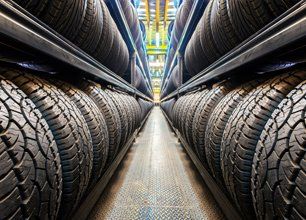The Environmental Advantages of Appropriate Tire Upkeep
Keeping appropriate tire care is commonly ignored, yet its impact on the environment is profound. Correct tire upkeep not only extends the life-span of tires however also decreases garbage dump waste and adds to boosted air high quality.
Minimized Gas Consumption
Improving tire maintenance techniques can lead to a substantial reduction in gas usage for automobiles. According to the U.S. Department of Energy, underinflated tires can reduce gas mileage by 0.2% for every 1 psi decline in stress in all 4 tires.
In addition to tire stress, regular tire turnings and placements also play a vital role in fuel efficiency. Erratically used tires can raise fuel intake as the engine functions harder to maintain rate and grip. By preserving appropriate placement and turning tires at recommended periods, chauffeurs can guarantee also use and prolong the life of their tires, ultimately saving fuel and lowering their carbon impact.
Extended Tire Life Expectancy
Prolonging the life expectancy of tires is a crucial facet of reliable automobile upkeep methods that can produce expense savings and environmental advantages in the lengthy run. By effectively preserving tires, drivers can considerably prolong their use, minimizing the frequency at which brand-new tires need to be manufactured and old ones dealt with. This not only preserves beneficial resources yet additionally lessens the power and emissions related to tire manufacturing and disposal processes.
Frequently inspecting tire pressure, turning tires, and guaranteeing appropriate alignment are crucial action in expanding tire life-span. Appropriate tread depth is crucial for optimal grip and security, but it likewise contributes in exactly how lengthy tires can be used prior to requiring replacement. Additionally, preventing hostile driving actions that speed up tire wear, such as harsh braking and doglegs, can better improve tire toughness.
Ultimately, increasing the durability of tires via proactive upkeep not only profits the environment by reducing waste and conserving sources however additionally results in set you back financial savings for car owners by postponing the need for new tire purchases.
Reduced Discharges Result
Efficient tire upkeep practices contribute to a reduction in discharges outcome, lining up with ecological sustainability objectives in the vehicle market. By keeping optimum tire stress degrees, vehicle drivers can assist reduce these adverse environmental impacts.
Furthermore, well-maintained tires likewise boost grip and reduce try this out rolling resistance, further enhancing fuel efficiency. This, subsequently, lowers the quantity of exhaust gases released right into the ambience. In addition, making sure tires are effectively blown up and straightened can extend the life expectancy of the check it out tires, minimizing the regularity of tire replacements and the linked ecological costs of tire manufacturing and disposal.

Reduced Garbage Dump Waste
Provided the favorable impact of appropriate tire upkeep on decreasing discharges output, an additional significant environmental benefit is the capacity for decreased land fill waste. By making certain that tires are effectively pumped up, straightened, well balanced, and turned consistently, their lifespan can be dramatically expanded.

Improved Air Top Quality
Enhancing air high quality via proper tire maintenance practices is a vital element of sustainable ecological stewardship. When tires are underinflated, they produce a lot more rolling resistance, leading to enhanced gas usage and greater emissions of hazardous pollutants more such as carbon monoxide gas and nitrogen oxides. Appropriately inflated tires not just improve fuel effectiveness yet likewise minimize the amount of contaminants launched into the air.
Furthermore, well-kept tires with correct tread deepness and placement add to more secure motoring problems, lowering the chance of crashes that can result in the release of additional contaminants into the atmosphere. By expanding the life-span of tires with regular maintenance and rotation, less tires are disposed of too soon, decreasing the ecological influence of tire disposal and production procedures.
Final Thought
To conclude, appropriate tire maintenance supplies countless ecological advantages. By minimizing fuel consumption, expanding tire lifespan, lowering emissions result, lowering garbage dump waste, and boosting air high quality, individuals can add to a healthier planet. These efforts not just profit the setting yet likewise aid to save sources and lower general environmental impact. It is important for people to focus on tire upkeep as a basic yet reliable way to secure the setting for future generations.
Appropriate tire maintenance not just extends the life-span of tires yet also reduces land fill waste and adds to boosted air high quality - tire tracks morris il. By maintaining correct placement and rotating tires at recommended intervals, chauffeurs can ensure also wear and lengthen the life of their tires, ultimately conserving fuel and minimizing their carbon footprint
By appropriately keeping tires, drivers can substantially extend their use, reducing the regularity at which new tires require to be produced and old ones disposed of.Consistently examining tire pressure, revolving tires, and guaranteeing proper placement are important steps in expanding tire life-span. Furthermore, ensuring tires are effectively blown up and aligned can extend the lifespan of the tires, minimizing the regularity of tire substitutes and the connected ecological expenses of tire manufacturing and disposal.